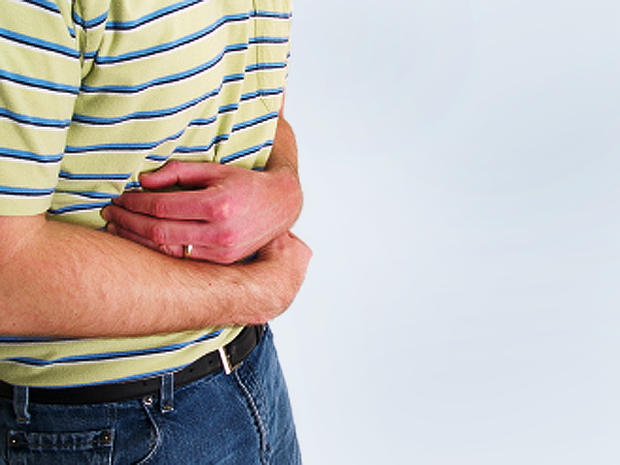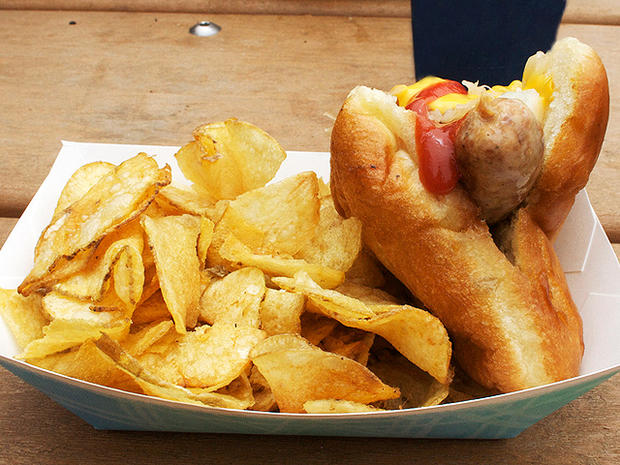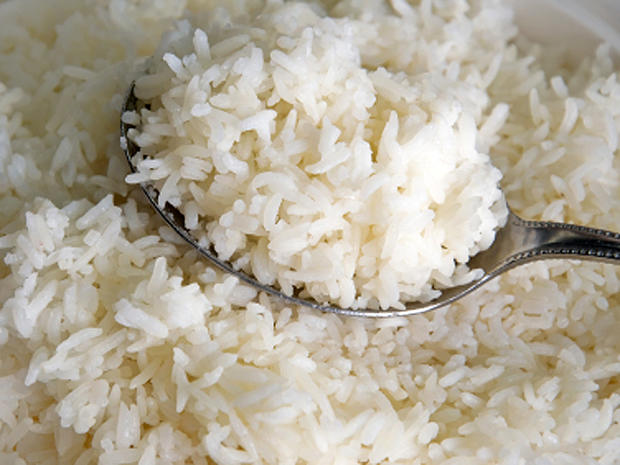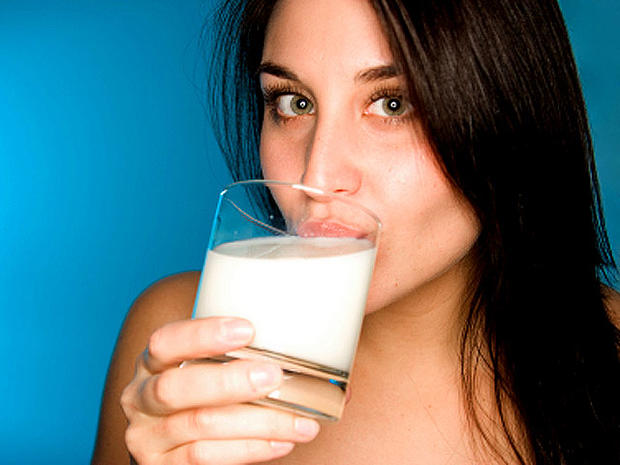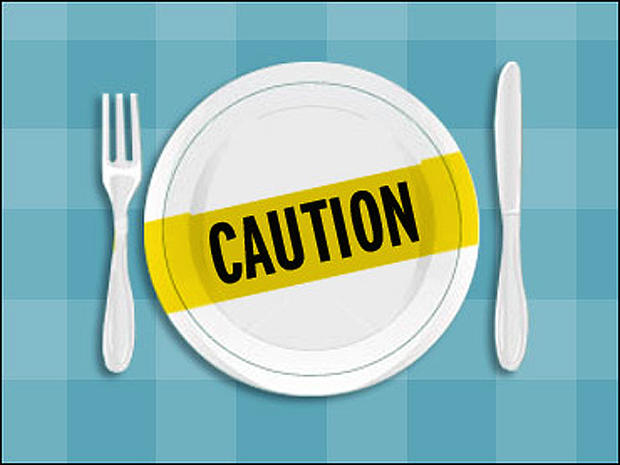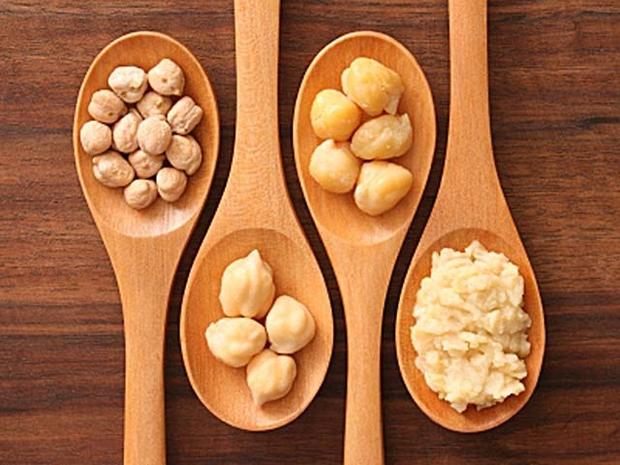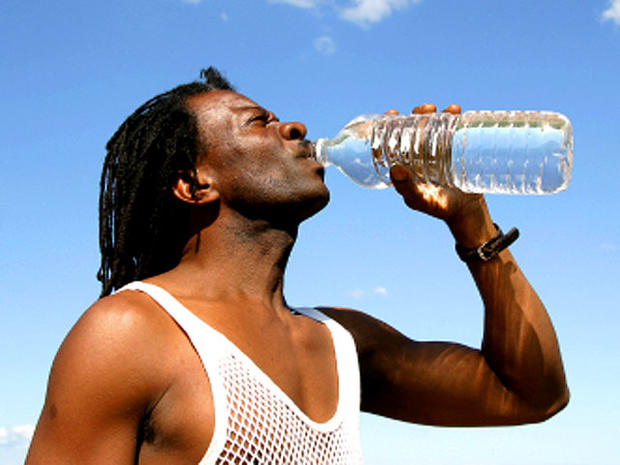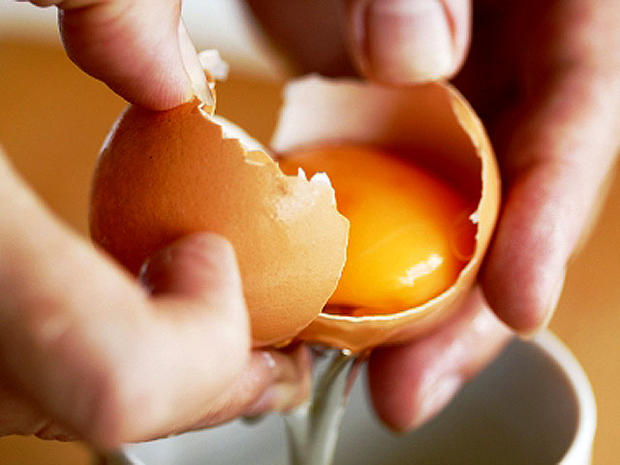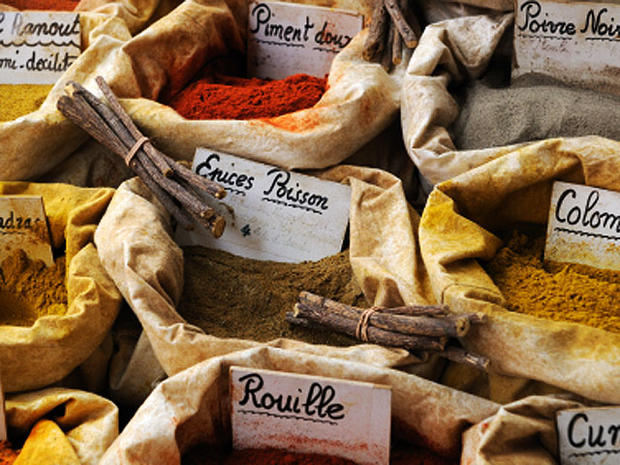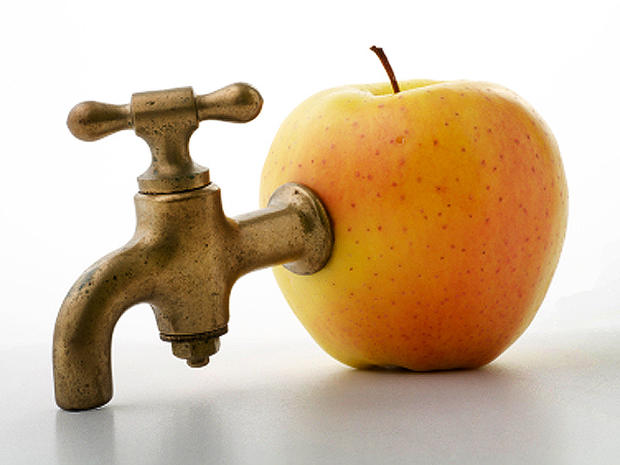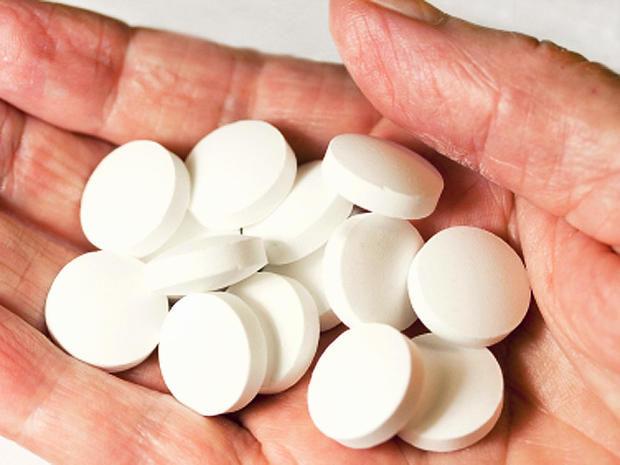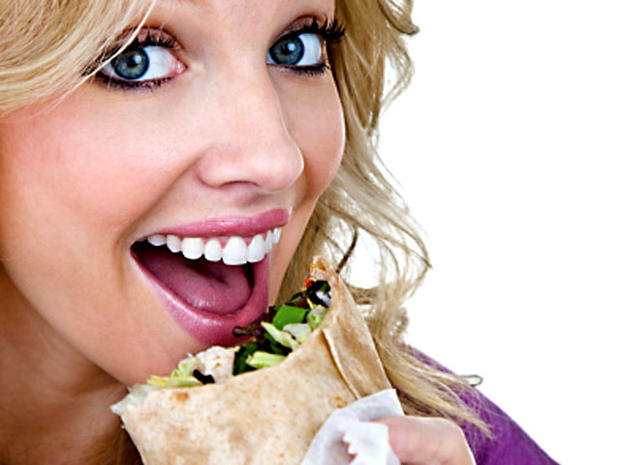Crohn's disease: 15 healthy-eating tips
Crohn's disease is a chronic, incurable inflammatory bowel disease (IBD). Symptoms include severe belly pain and diarrhea, among others.
Certain foods or eating habits can exacerbate Crohn's disease symptoms, although they aren't the underlying cause or trigger of the IBD, says Dr. Sunanda Kane, professor of gastroenterology at the Mayo Clinic, in Rochester, Minn.
Each person is different, so you may need to use trial and error to see what types of food or eating habits help (or hurt) your symptoms. From our friends at Health.com, here are 15 tips on how to eat with Crohn's...
More from Health.com: 14 foods to avoid if you have ulcerative colitis
Talk to a nutritionist
If you have Crohn's disease and are concerned about your nutrition, it would be a good idea to talk with an RD, especially one who is familiar with IBD, says Julie Cepo, a registered dietitian who works with IBD patients at Mount Sinai Hospital, in Toronto, and is coauthor of the "Crohn's & Colitis Diet Guide."
"I help them come up with an eating strategy that they can tolerate but that also works with their personal and cultural preferences and food philosophies," Cepo says.
Seeing a nutritionist who doesn't understand IBD, on the other hand, may do more harm than good, warns Dr. Kane.
More from Health.com: 14 foods to avoid if you have ulcerative colitis
Write it down
Keep track of everything you eat, how you feel after you eat it, and the status of your disease to determine what types of food worsen your IBD symptoms. Because it's different for every person, writing everything down is the best way to learn what your body can and can't process.
"Also, I ask people not to introduce a lot of new foods too quickly," says Cepo. "Introduce them one at a time and wait a day or two to see if affects your symptoms."
It's not a bad idea to try new foods at home first, before eating them in a social situation.
More from Health.com: 14 foods to avoid if you have ulcerative colitis
Go easy on the grease
Fatty food can be hard for the body to digest and make diarrhea worse, especially if you've had certain parts of your bowel removed during surgery for Crohn's disease. (Plus certain fats are bad for your heart.)
So, people with Crohn's disease should stay away from greasy or deep-fried foods. Cream-based sauces, like mayonnaise or Alfredo sauce, can also be problematic.
More from Health.com: 14 foods to avoid if you have ulcerative colitis
Try a reduced-fiber diet
Doctors and nutritionists may recommend a low-fiber diet (avoid whole-wheat and whole-grain products and unrefined flours) for those having a flare-up, healing after surgery, or experiencing bowel narrowing due to inflammation or scar tissue.
This diet reduces cramps, diarrhea, and the volume, consistency, and frequency of stool. You can still have soluble fiber. Fruits and vegetables aren't off limits either - cook them to cut their fiber, or remove the seeds, skins, and fibrous membranes.
Cepo recommends the diet only to manage symptoms in the short-term. If you're feeling better and your doctor says it's OK, go back to a healthier diet.
More from Health.com: 14 foods to avoid if you have ulcerative colitis
Be careful with dairy
Just like the general population, lots of people with Crohn's disease have some level of lactose intolerance. The conditions are usually unrelated, but they do share many of the same symptoms.
For these people, dairy may explain some of the pain and GI problems associated with IBD.
"If you realize that dairy does affect you, it may not be a case of avoiding it completely, but it's a question of finding out how much you can tolerate," says Cepo. "Two pieces of pizza with cheese might be OK, but three might be too much."
More from Health.com: 14 foods to avoid if you have ulcerative colitis
Eat small, frequent meals
Portion control is important, because eating too much at one time can make it hard for the body to digest food.
Small, frequent meals can help. You can still eat three meals a day, but make them a bit smaller than usual, and supplement them with several well-balanced snacks in between.
"You won't go into your next meal as hungry, and you'll be less likely to overeat, which may lead to bloating," says Cepo.
More from Health.com: 14 foods to avoid if you have ulcerative colitis
Avoid roughage
Corn, beans, and stringy vegetables like raw celery and broccoli aren't easily digested; in Crohn's they can cause cramping, bloating, and diarrhea.
"We call it roughage, and it's rough on your system," says Dr. Kane. "For a healthy intestine, that is a good thing, but for an inflamed one, it can be bad. Having to process things that are still intact will make some people really uncomfortable."
Dr. Kane suggests trying a "low-residue diet" that is low in fiber and other foods that are difficult to digest like raw fruit, vegetable peels, and seeds. "When you have active IBD symptoms, these foods are just going to make you feel lousy," she says.
More from Health.com: 14 foods to avoid if you have ulcerative colitis
Prep foods in a new way
Many foods that are a problem when raw or whole can be eaten if prepared differently, says Cepo. "We try to focus on what people can still have; often that means cooking foods well, like string beans, cauliflower, or carrots and sweet potatoes."
Stringy foods like onions may be better tolerated if minced into very small pieces, just as seeds and nuts seem to cause fewer symptoms when they're ground. Chickpeas and sesame seeds, for example, may cause problems, but hummus, which is made with ground chickpeas, and tahini, a sesame-seed paste, may not.
More from Health.com: 14 foods to avoid if you have ulcerative colitis
Stay hydrated
Water intake is always important, but critically so if you have frequent diarrhea.
Cepo cautions patients to limit beverages with caffeine, carbonation, or too much sugar - all things that can make GI symptoms worse.
Water is a good choice, she says, as are diluted fruit juices without a high sugar content. For people who are very sick and at risk of becoming dehydrated, an over-the-counter rehydration fluid like Gatorade can replenish fluids and electrolytes.
More from Health.com: 14 foods to avoid if you have ulcerative colitis
Pump up your electrolytes
Replenish lost electrolytes like sodium and potassium if you're having loose stools. "One option is to sprinkle salt liberally on your food," says Cepo. You can also sip broths or bouillons, and choose salty snacks like pretzels, crackers, rice cakes, or potato chips.
To get more potassium, eat potatoes (without skin), bananas, tomato juice or sauce, avocados, melon, or citrus fruits like grapefruit or orange (with the membrane removed, if needed). Coconut water is also a good source of potassium, and a good way to stay hydrated.
More from Health.com: 14 foods to avoid if you have ulcerative colitis
Don't skimp on protein
People with Crohn's disease often give up meat, beans, and cheese. But without protein, you can lose muscle mass.
"People say to me, 'I gave up red meat because I can't digest it,' but it's because they're trying to eat a normal American-size helping of steak or a giant burger," says Dr. Kane. "I tell them to eat 6 ounces of really good quality red meat; that way they'll get the iron and protein they need without overdoing it." Fish, tofu, beans, and eggs, if they're well tolerated, are also good protein sources.
More from Health.com: 14 foods to avoid if you have ulcerative colitis
Season with ground spices
Spicy food can be a problem, but that's no reason to ban all herbs and spices from your kitchen. "I see spice as an important part of any diet, especially since one of the side effects of IBD is having a depressed appetite," says Cepo. "Anything we can do to stimulate people's interest in food is a good thing."
Cepo recommends using flaked or chopped spices and herbs. "If you find you have any symptoms, hold back a little more the next time you use it."
More from Health.com: 14 foods to avoid if you have ulcerative colitis
Consider a liquid diet
Although it's not a long-term solution, people with Crohn's - especially those with intestinal blockages who are unable to process solid foods - can try a temporary liquid diet.
A liquid diet can give the intestines a rest, which can help suppress symptoms. However, this diet should be carefully planned with your doctor to ensure you're getting all the right nutrients.
High-calorie liquid supplements, such as Ensure Plus or Boost Plus, can add nutrients and calories to any diet, as well, if you're not getting enough from food alone.
More from Health.com: 14 foods to avoid if you have ulcerative colitis
Supplement with vitamins
All people with IBD should take a multivitamin, says Dr. Kane, because they're probably not getting all the nutrients they need.
People who avoid dairy should also consider taking about 1,500 milligrams of calcium with 800 IU of vitamin D daily. Those who have had small-intestine surgery probably need extra vitamin B12, too.
Talk to your doctor before taking any supplement, and remember, supplements should do just that: supplement the nutrients you get from foods, rather than replace them.
More from Health.com: 14 foods to avoid if you have ulcerative colitis
Eat normally when you're well
In between Crohn's flare-ups, if you're feeling better, eat normally and enjoy your food.
"It can be hard for someone, knowing that the last time they ate celery they had a terrible experience, but it may be tolerated again when the disease is in remission," Cepo says. "Working with a dietitian or a doctor can help you build back up confidence and improve that relationship with food."
As long as you don't have any ongoing bowel issues or long-term narrowing of your intestine, following general healthy-eating guidelines is a good strategy, says Cepo.
More from Health.com: 14 foods to avoid if you have ulcerative colitis
